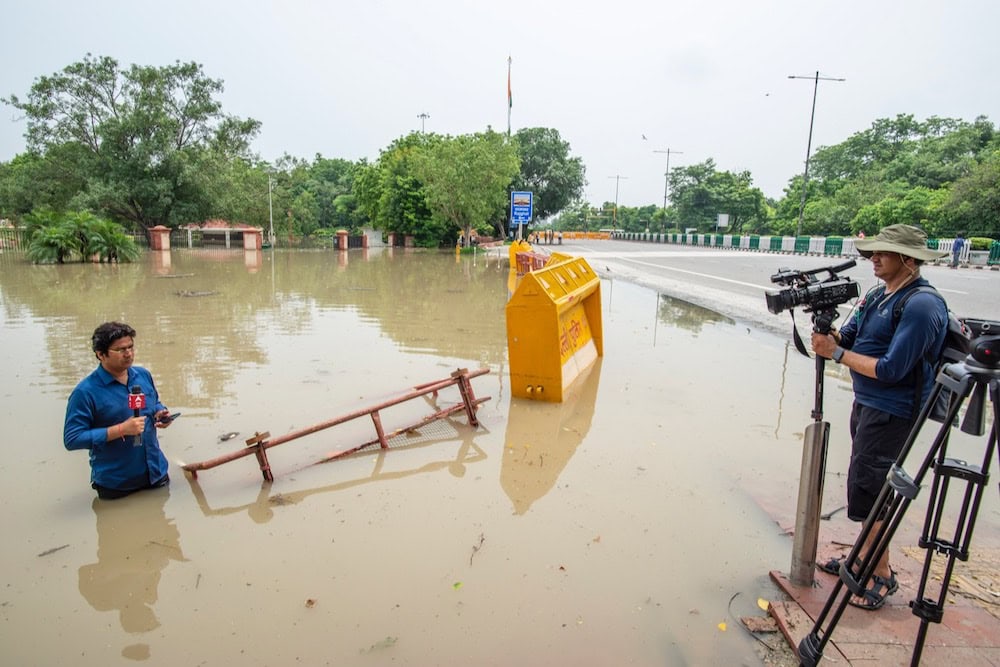International Press Institute (IPI)
5 June 2024

New Delhi, India, 15 July 2023. A camera operator and a TV journalist report on the torrential rains in the Raghat region and the flooded Yamuna river. Pradeep Gaur/SOPA Images/LightRocket via Getty Images
"We call on states around the world to ensure that climate and environmental journalists can do their work independently, freely, and safely. This includes ensuring environmental journalists are granted access to information and access to protected areas." - IPI
This statement was originally published on ipi.media on 5 June 2024.
The members of the International Press Institute (IPI), meeting at their 73nd annual General Assembly during the IPI World Congress on May 23, 2024 in Sarajevo, Bosnia and Herzegovina adopted by unanimous vote a resolution calling on states to ensure robust, independent news reporting and access to information on the environment and the climate crisis that is threatening the health, prosperity, and security of societies around the world.
Addressing the global climate and environmental crisis requires accurate, independent journalism that can inform the public debate and shine a light on actions by actors with vested interests that can accelerate environmental destruction, exacerbate social and economic inequities, and endanger the most vulnerable local communities.
But this reporting is at risk. Around the world, climate and environmental journalists face multiple, complex threats to their work. These threats include legal harassment, arrest and detention, physical attacks and intimidation, online harassment, restrictions on freedom of movement, and obstacles accessing information.
Far too often, journalists covering issues related to climate change and environmental issues are targeted by powerful government and private actors who are willing to go to great lengths to shield their harmful activities from public exposure. In addition to facing physical threats and harm, journalists attempting to cover these stories often face criminal charges – including with laws criminalizing the dissemination of “false information” – as well as vexatious civil lawsuits aimed at punishing and silencing critical reporting.
Far too often, such attacks against environmental and climate journalists go under reported and under investigated, and are carried out with impunity.
We therefore call on states around the world to ensure that climate and environmental journalists can do their work independently, freely, and safely. This includes ensuring environmental journalists are granted access to information and access to protected areas to allow them to gather information and carry out fact-based investigations on issues of major public interest. Authorities must refrain from weaponizing the law to harass and intimidate journalists working to expose corruption and illegal activities that harm the environment and worsen climate change. States must commit to ending impunity for crimes against environmental journalists, and all journalists, as an essential step to ensuring the public’s right to robust, independent information on critical issues affecting the health and stability of our planet.
No comments:
Post a Comment